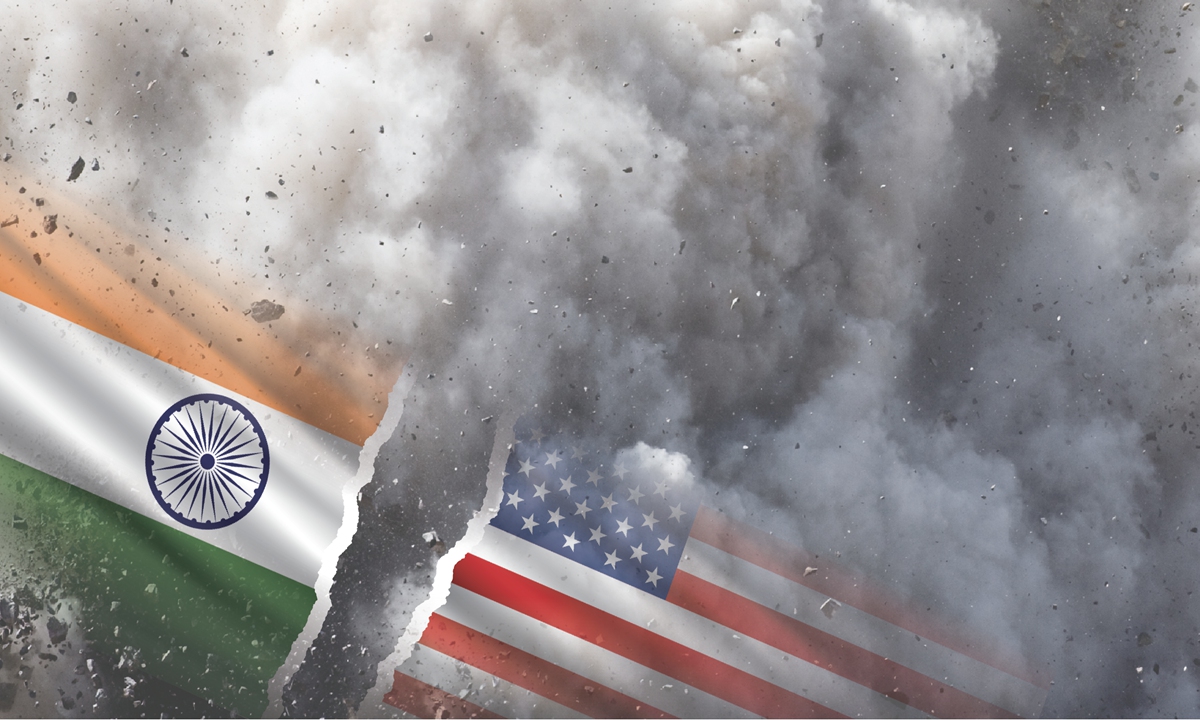
The overwhelming assumption in the West is that the world, with a few exceptions, is strongly opposed to Russia’s military actions in Ukraine. The West itself, including the great majority of Europe, seems to be of one voice in its condemnation. But worldwide the picture is rather more complicated. In the UN General Assembly on March 3, while 141 countries condemned Russia’s invasion and called for an immediate withdrawal, 35 countries abstained and five voted against. In the recent vote to exclude Russia from the UN Human Rights Council, 93 countries voted in favour, 58 abstained and 24 were against.
While there are clearly deep misgivings on the part of many countries about Russia’s actions, there is also widespread concern about the stance of the US. The most interesting, and potentially by far the most significant case, is India. Given India’s westward drift over the last 20 years and more, it might have been expected that India would strongly back the US. But, on the contrary, it has been a major critic of the US’s role while maintaining a supportive attitude toward Russia. In the major UN votes it has consistently abstained. As China and India alone between them represent around 38 percent of the global population, this suggests that governments accounting for around half the world’s population are deeply uneasy about America’s position.
The reason is twofold. First, many countries in the developing world, including India, reject the idea that a country, in this case Ukraine, is free to do whatever it likes even if it threatens the security of another country, in this case Russia. Second, the weaponization of sanctions as a new form of warfare is widely viewed as a very negative development. The US has assumed the right, based on the vaguest of wording, to act in an arbitrary manner against any country that it deems to have continued trading with Russia. The overriding priority of developing countries, however, is the right to trade and receive investment from wherever it might come from. The American approach to sanctions threatens this freedom. It is striking that the great majority of countries in the developing world have refused to impose sanctions on Russia. In Asia, only Japan, South Korea and Singapore have agreed to implement them.
India’s relationship with Russia goes back to the 1950s. It regards Russia as a very important economic partner, the major supplier of its arms, and a long-standing friend. Despite heavy-duty lobbying by the US, and from others such as the UK, India has refused to support the US position on Russia. Will this prove to be an isolated incident, or could it signal a major turning point in India’s attitude toward America? Already, there has been a marked shift in Indian commentary on its foreign policy, with many questioning whether India has grown too close to the US and whether it should return to its more traditional stance of neutrality. The most dramatic illustration of its westward drift has been its membership of the Quad, along with the US, Japan, and Australia, although it has declined to participate in its naval patrols.
India is already the world’s third largest economy. A research by Standard Chartered forecasted that during the 2030s India is likely to overtake the US to become the second largest. India’s future importance in the world, I would argue, has been seriously neglected in China.
By 2050, if not very much earlier, it will be abundantly clear that China’s relationship with India is one of its most important, perhaps even the most important of all. Unfortunately, ever since the border conflict in the 1962 clash, the two countries have witnessed an uneasy and troubled relationship. There are many reasons for this, including the large cultural distance between them, such that they find it difficult to understand each other. Undoubtedly the single most divisive issue is the long-running border dispute between the two countries. Although China pays only limited attention to the matter, India has been obsessed about it ever since they received a bloody nose in the 1962 clash. If the two countries could find a way of cooling the present tensions, or, even better, finding a way of reaching a final settlement, then the biggest single obstacle to a much closer relationship between the two countries would be removed. This should be a major strategic priority for the Chinese leadership.
Taking a global rather than narrowly European or Western view of the Ukraine war offers a very different perspective. The developing world, home to the great majority of the world’s population, has a markedly different take on it to that of Europe. It is as much, if not more, concerned about the US response than Russia’s actions. Much attention has been paid to the fact that the war has brought the US and Europe much closer together, but all too little attention has been given to India’s growing distance from the US and what this might mean for the future. It is even conceivable that this might lead to limited forms of cooperation among China, India and Russia.
